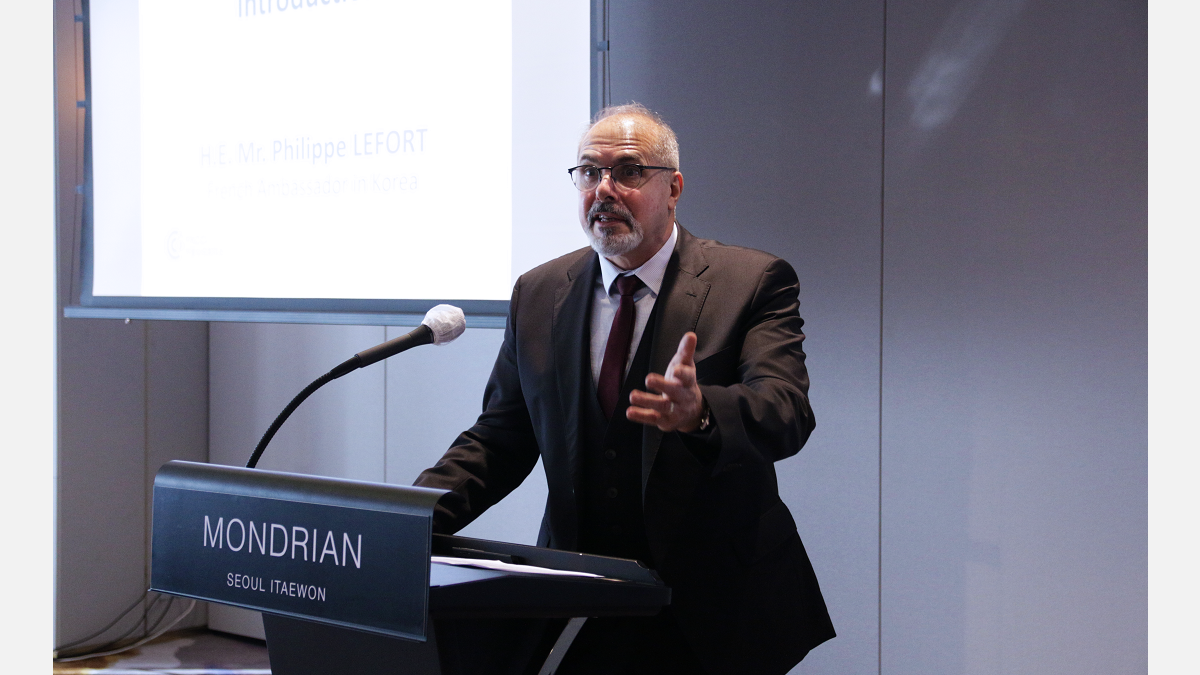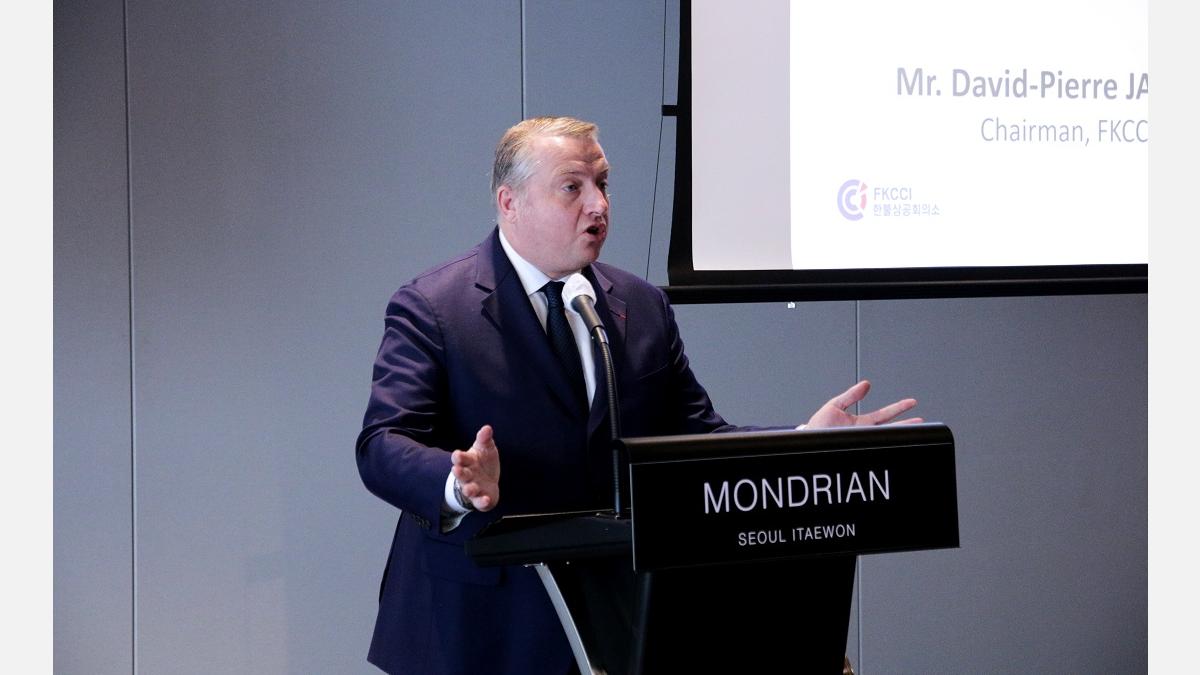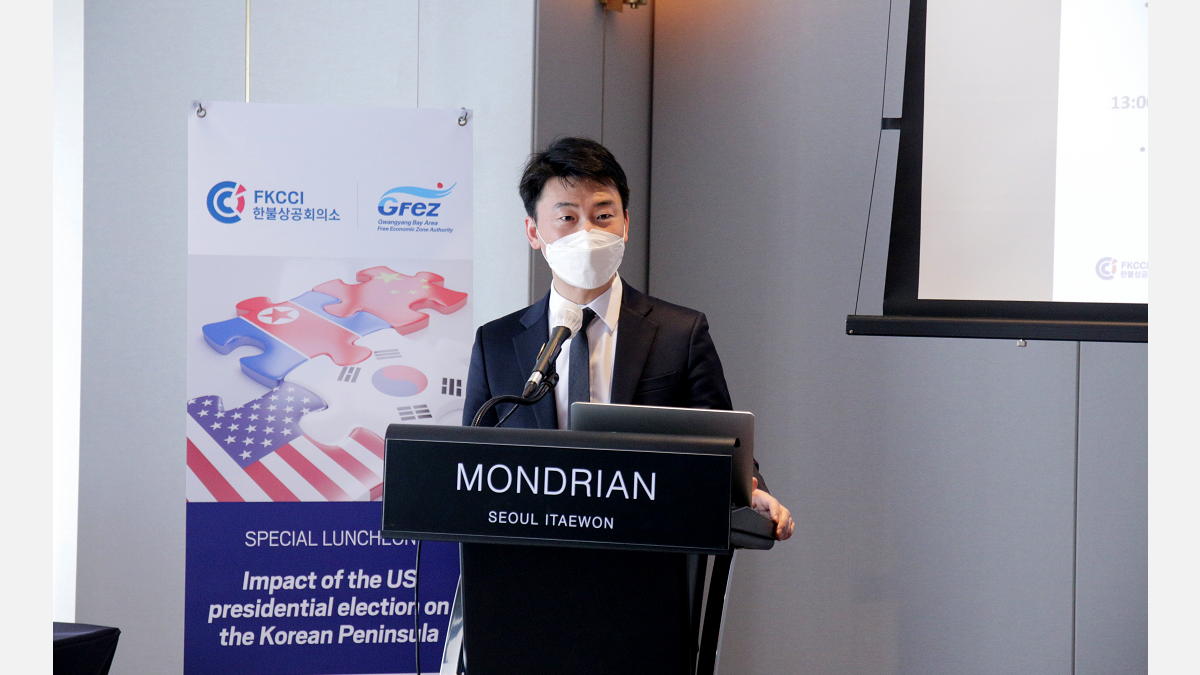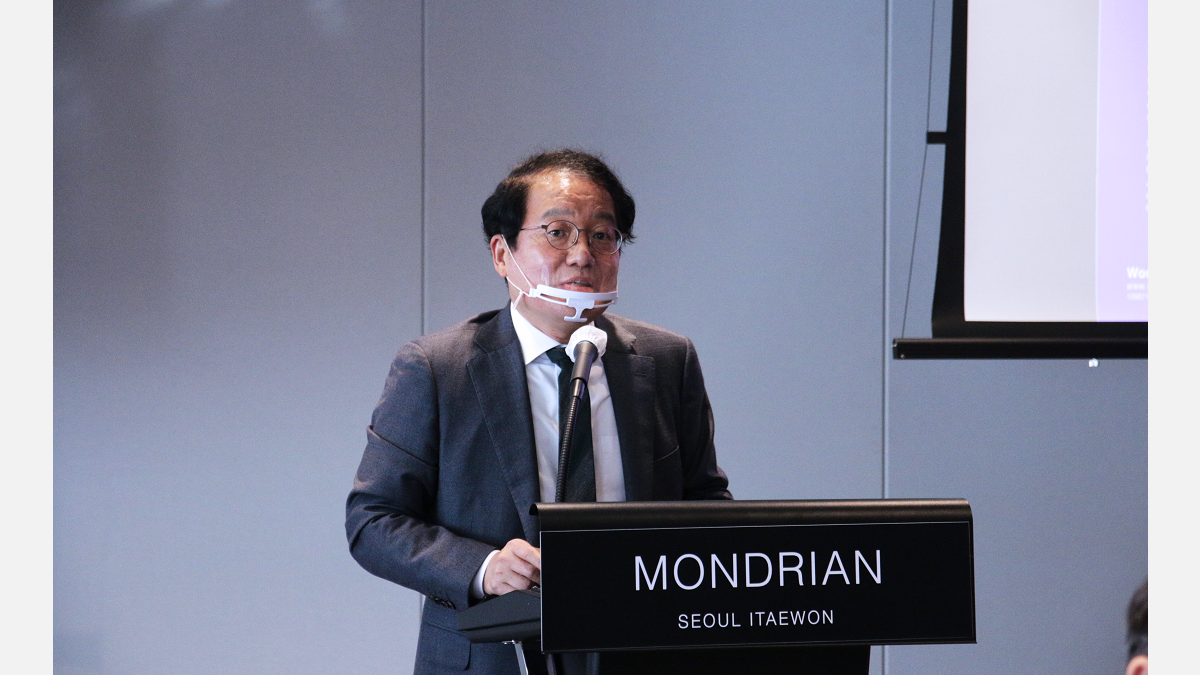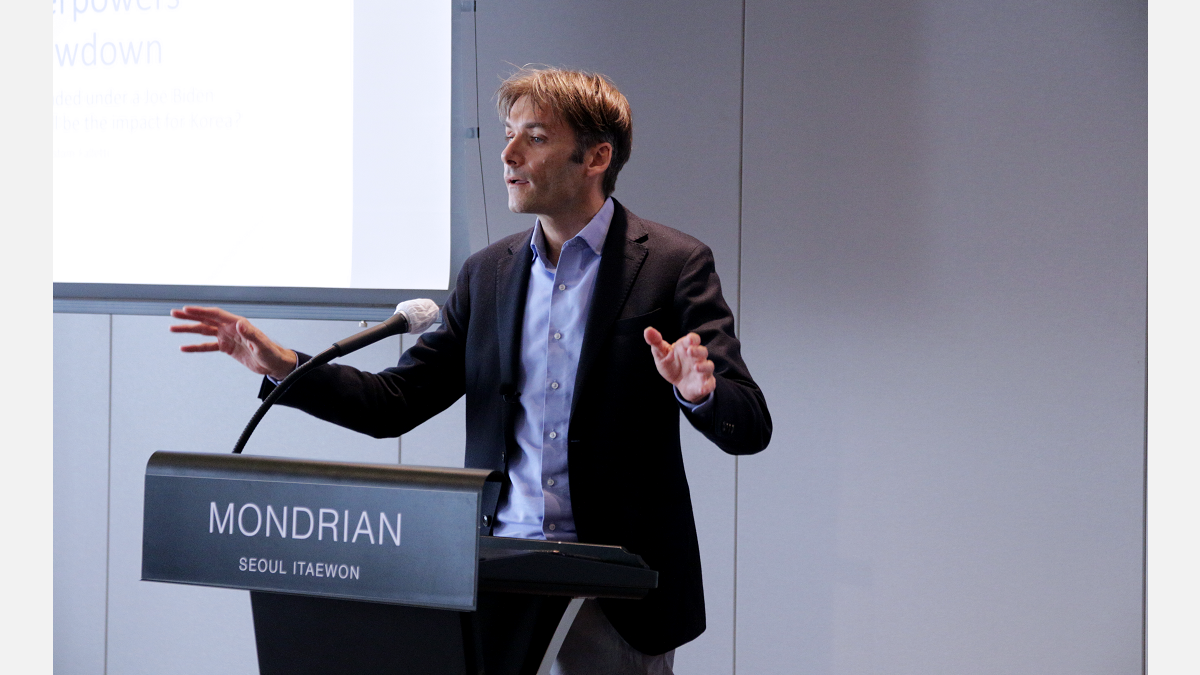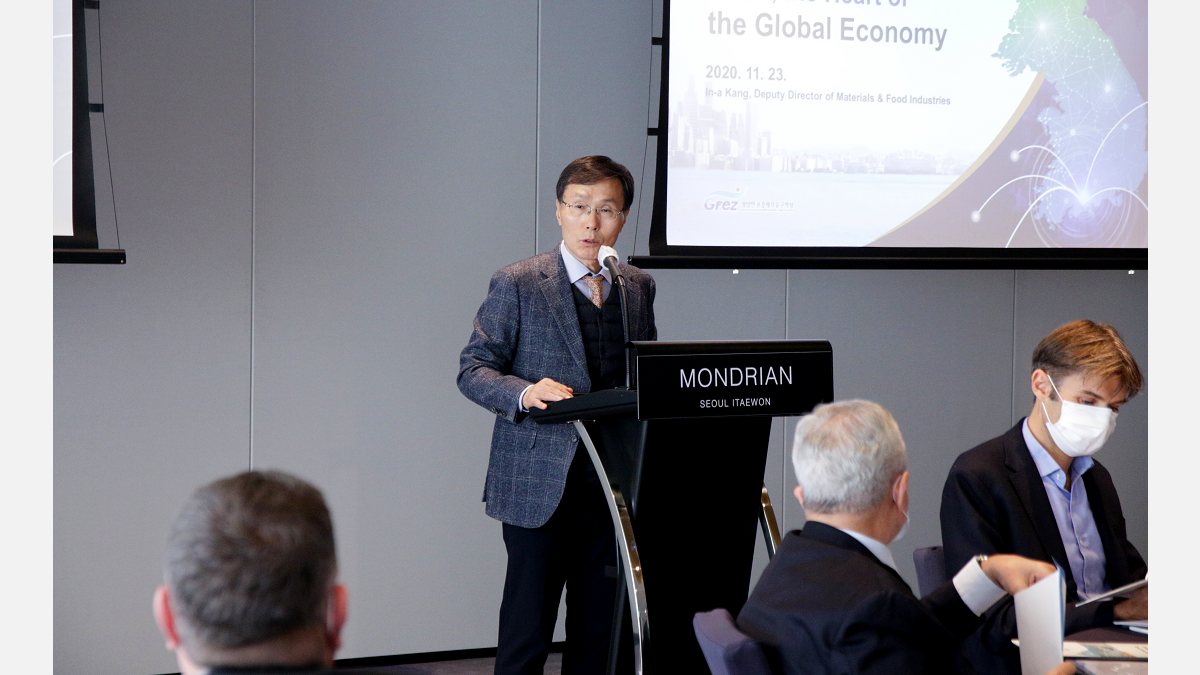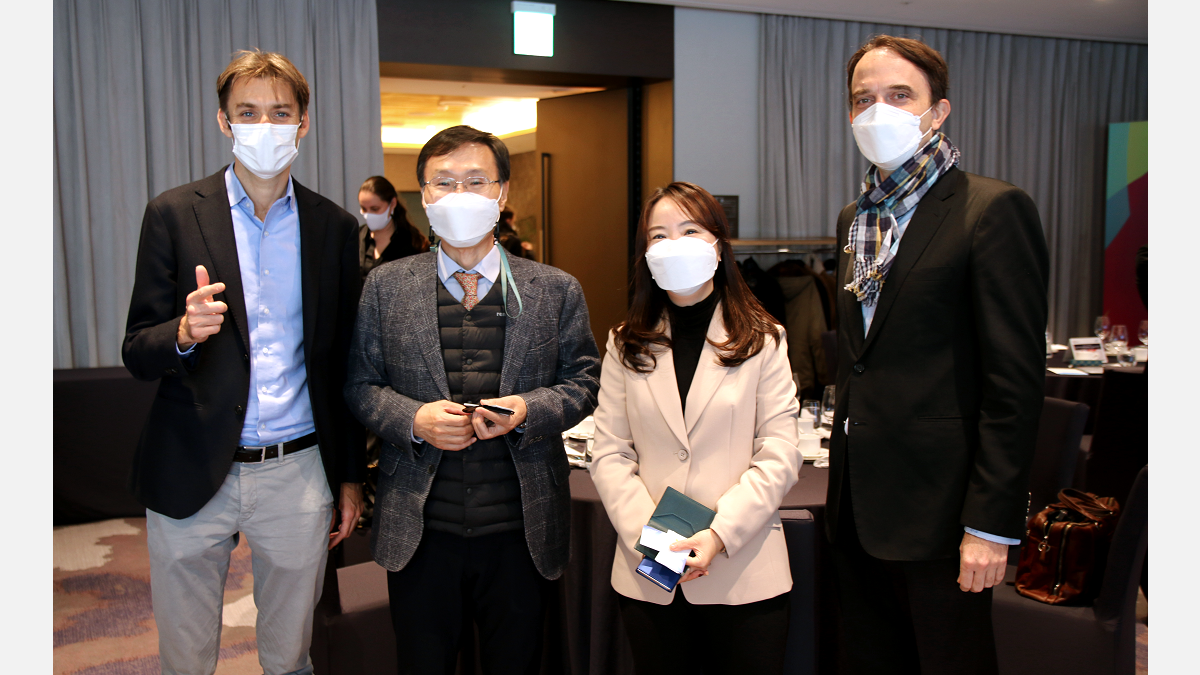Bilans d’évènement
Where is geopolitics in Asia headed with Joe Biden’s election? - FKCCI special luncheon
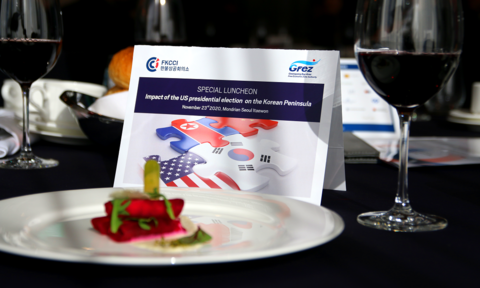
On Nov 23 FKCCI held a special luncheon on the impact of the USA presidential election on the Korean peninsula and its regional geopolitical landscape
For months, the world has been looking with expectations at the American presidential election. Now that Joe Biden has been announced as the 46th President of the United States, changes are to be expected in American diplomacy which will have an impact on the position of South Korea in its regional environment, especially with North Korea and China.
After a welcome address of Mr. David-Pierre Jalicon, FKCCI Chairman, and H.E. Philippe Lefort, French Ambassador to Korea, we had the pleasure to invite Mr. Sung-wook Nam, advisor at Ministry of National Defense Policy and expert of North Korea, and Mr. Sébastien Falletti, journalist for Le Figaro, who respectively presented the prospect of the relation between North Korea and USA during Biden administration, and how far the escalating US-China rivalry will reshape Asia and its influence on South Korea’s position.
For Sung-wook Nam, President Joe Biden thinks it is important to show strength when dealing with world political giants and emphasize the restoration of democracy in his foreign policy. In this context, he expects the difficulties in ROK-US relations created under Trump administration to be eased. Regarding the North Korean issue, Biden is also expected to stick to a bottom-up approach, unlike President Trump’s top-down approach, which skipped the role of working-level staff on negotiations on denuclearization. An easing of NK-US relation is although unlikely if Kim Jong-Un does not take substantial denuclearization measures.
Similarly, according to Sébastien Falletti, Joe Biden is unlikely to come back to Barack Obama’s mild approach and will adopt a tougher line regarding China (especially on human rights, Hong-Kong or Taiwan), although he will get back to more traditional and predictable diplomacy unlike his predecessor. This is expected to intensify US/China systemic rivalry, which will make South Korea’s position more difficult and push Moon Jae-In to adopt a clearer line of action, especially on major regional issues such as the South China Sea (where 73% of its oil imports go through). In that context, South Korea would benefit from strengthening its partnerships outside of the two superpowers, with the ASEAN, Europe and Japan. At the same time, president Xi Jinping’s was not weakened by the global Covid-19 pandemic and was on the contrary reinforced by his successful crisis management, which gave him legitimacy in creating a counter-model to the West.
After these insightful interventions, we had the pleasure to host Mr. Yunsik Kim, Director General of Investment Promotion, and Ms. In-a Kang, Deputy Director of Materials & Food Industries at GFEZ for a presentation of investments opportunities and advantages in the Southern region of Korea. We warmly thank our partner GFEZ (Gwangyang Bay Area Free Economic Zone Authority) for their support to this event!
